Subject leadership is a top priority for most primary schools, especially with the demands of the Ofsted inspection framework (2020).
Ofsted’s new inspection framework challenges schools to implement a carefully planned, broad and balanced curriculum – something that many of us in the primary sector have always believed matters for children.
The success of a broad and balanced curriculum depends on all subjects having an equal place at the table. In today’s educational climate, subject leadership requires excellent levels of subject expertise, a good understanding of how a subject should progress over time and how it connects with the school’s curriculum as a whole.
The EIF
In the inspection framework, the judgement ‘quality of education’ is no longer biased towards English and Maths. Nor is it focused on exponential amounts of data relating to these subjects. Quality of education can only be judged ‘good’ or better if children are progressing through a well-constructed, sequenced curriculum that embraces subjects and the wider curriculum. How a school plans and delivers its curriculum and the manner in which subjects progress over time, will now be the key objectives of external scrutiny.
As stated in the school inspection handbook, inspectors will gather evidence through ‘discussions with curriculum and subject leaders and teachers about the programme of study that classes are following for particular subjects or topics, the intended endpoints towards which those pupils are working, and their view of how those pupils are progressing through the curriculum’ and ‘discussions with subject specialists and leaders about the content and pedagogical content knowledge of teachers, and what is done to support them.’
Challenges for primary schools
Senior leaders across the sector are asking themselves some challenging questions, such as ‘How do we ensure quality subject coverage? Who will take responsibility for subject leadership? How do we help children make progress in all subjects?’ These questions reflect real challenges for most schools and are both logistically and financially difficult to answer. With the need for a reduction in teacher workload, and the financial and educational implications of releasing key members of staff from teaching, how can we ensure that our subject leaders have the time, financial backing and expertise to achieve what is necessary?
The subject leadership role
The expectation is that all primary teachers have a high level of subject pedagogical content knowledge for the age range that they are teaching and an understanding of the critical endpoints that come before and after. A subject leader’s role is to analyse and build the appropriate provision in their subject, then cultivate the staff’s pedagogical content knowledge to maximise learning across their school. This process – Analyse, Build and Cultivate – is the ABC of subject leadership.
The ABC of subject leadership

Analyse
A subject leader must analyse the intended content of their subject, know what is being delivered, when and why, and understand the impact of the provision. The following questions are often helpful during this part of the ABC process:
- Are all the programmes of study in the subject covered?
- Are all elements of each programme of study covered?
- Is there a clear progression framework? Does it help children learn and retain required subject knowledge and skills in the correct sequence?
- Are the activities and resources planned to deliver the knowledge and skills ambitious and of the highest quality?
- How do the planned activities support the progression of the wider co-curriculum?
- Is the subject taught sequentially, allowing for repetition of learning, for skills to be applied and knowledge to stick?
- Is pedagogical content knowledge of all teachers at the required level and continually developing?
- Is the intended subject content actually being taught?
- What is the current attainment and progress through the curriculum in this subject area?
Build
Subject leaders must work to fill any gaps in coverage, either through the addition of planned learning opportunities to current content, or the creation of specific new curriculum opportunities such as art or science weeks. Teaching resources, such as knowledge organisers, may need to be developed to fill gaps in children’s learning and offer the chance to ‘level the playing field’ of knowledge.
Cultivate
Subject leaders should be given the opportunity to both observe and support teaching and learning to cultivate their subjects. Such opportunities should include working with all staff to develop their pedagogical content knowledge, time to develop their own expertise through training and research, and investigating how implementations are embedding. At set times during the year, as part of the whole process, a subject leader should analyse and evaluate the impact of their work.
Making subject leadership manageable
Many schools are facing these challenges head-on. But some are still struggling to bring expectations in line with reality. Curriculum Maestro, which supports curriculum development and the demands of subject leadership at all levels is the best tool a subject leader can have to help them face these challenges. Here’s why.
How Maestro supports the ABC of subject leadership
Intended curriculum coverage
View the programmes of study, subject aspects, concepts and themes covered in your curriculum. Linked to the Cornerstones Curriculum or your own content.
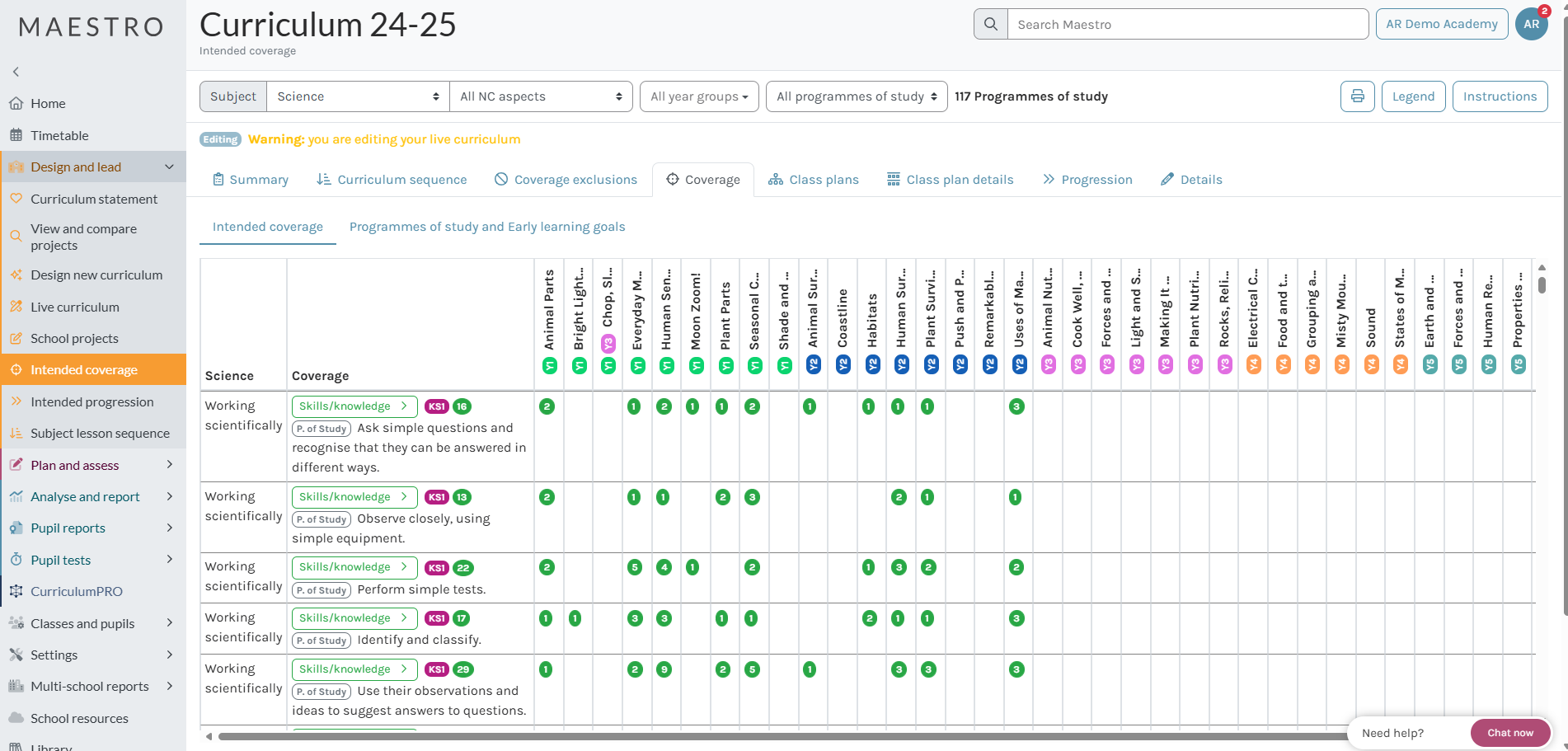
Intended curriculum progression
Check intended progression in all subjects, based on Maestro’s rigorous skills and knowledge framework.
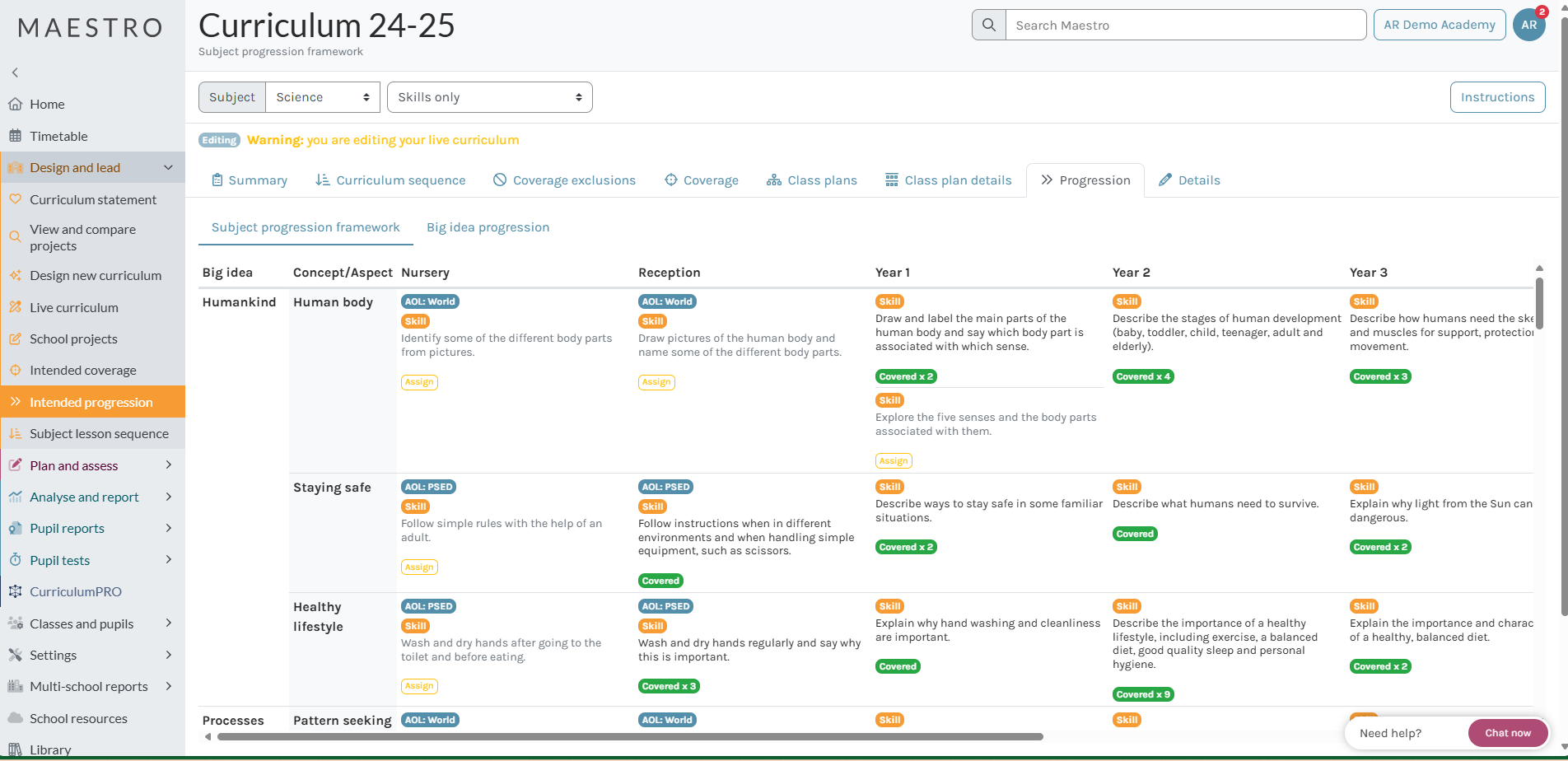
Subject lesson sequence
Check and adapt subject lesson sequences to ensure quality activities and supporting resources are planned.
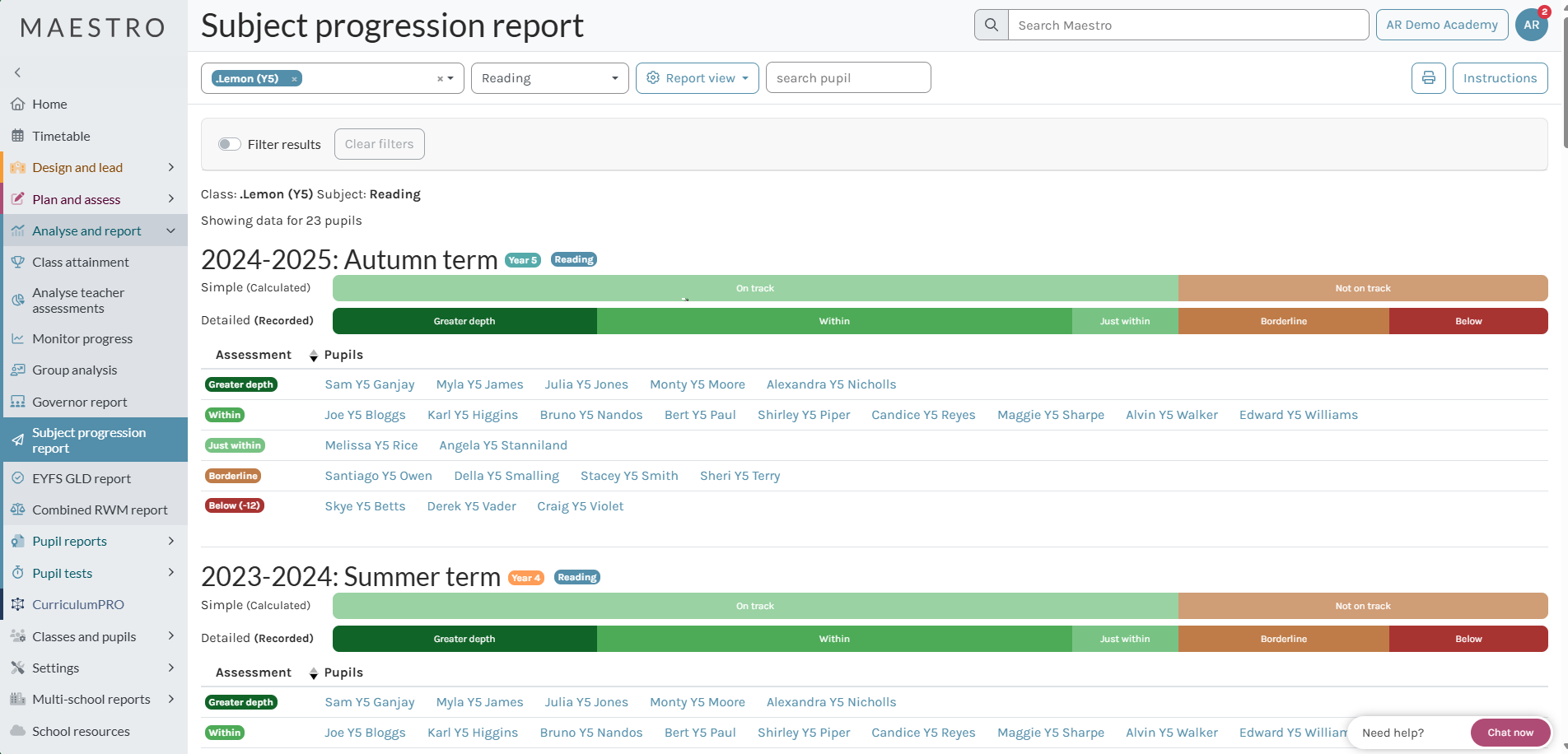
Actual coverage
Monitor and evaluate intended and actual coverage of subjects across school.
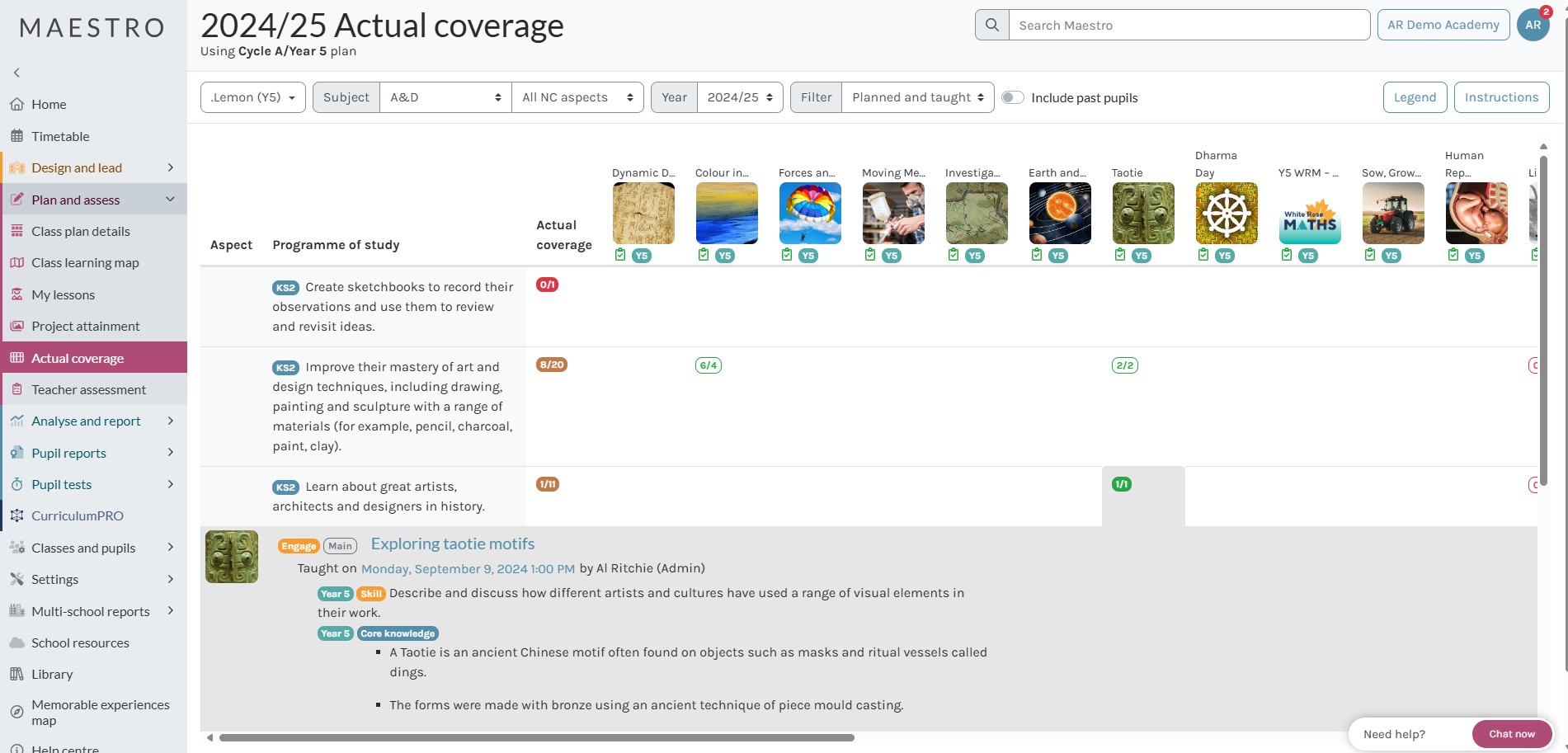
View class attainments
Assess what has been taught and learned using live information. Analyse at an individual, group, class and whole school level.
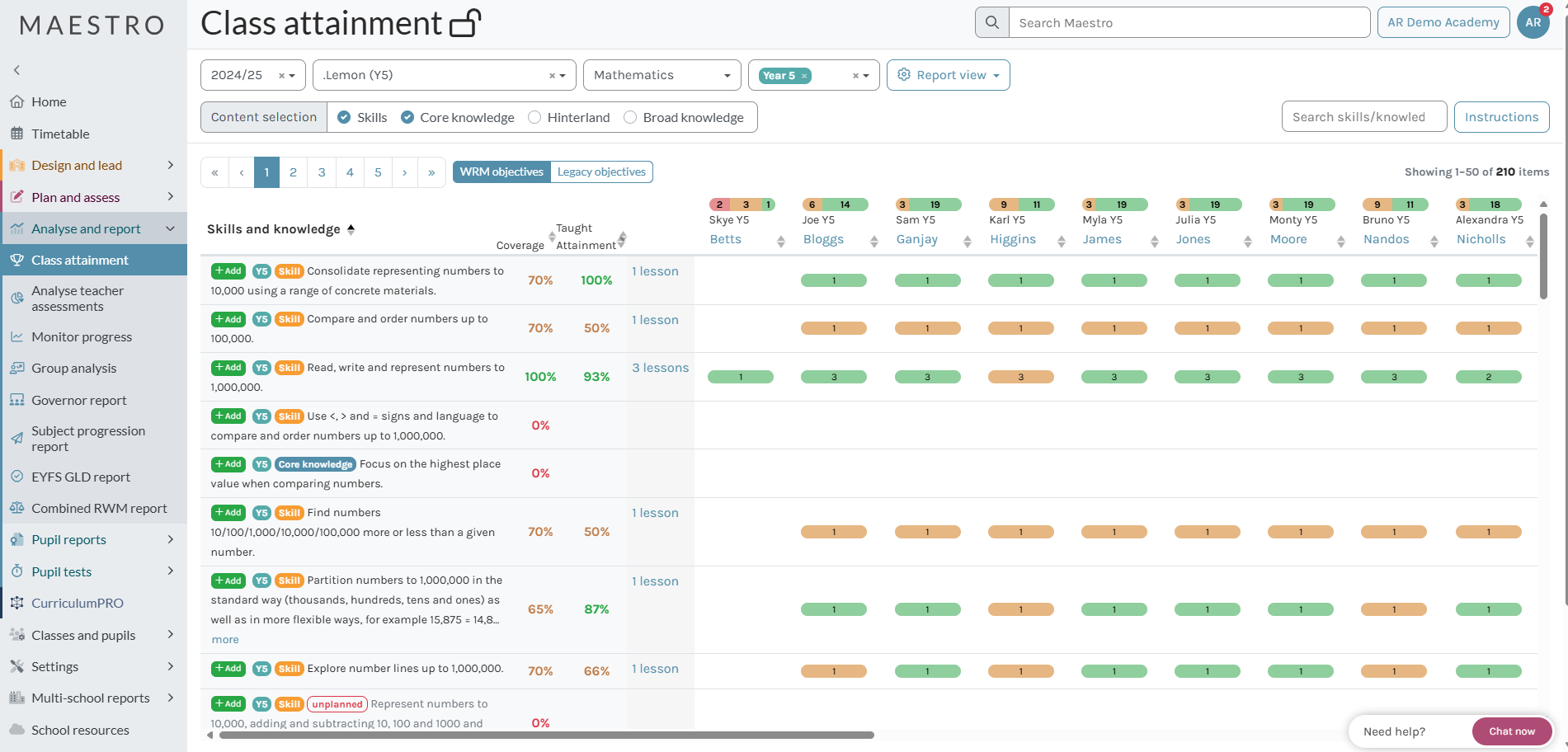
Teacher assessment
View attainment Teacher assessment.

Analyse teacher assessment
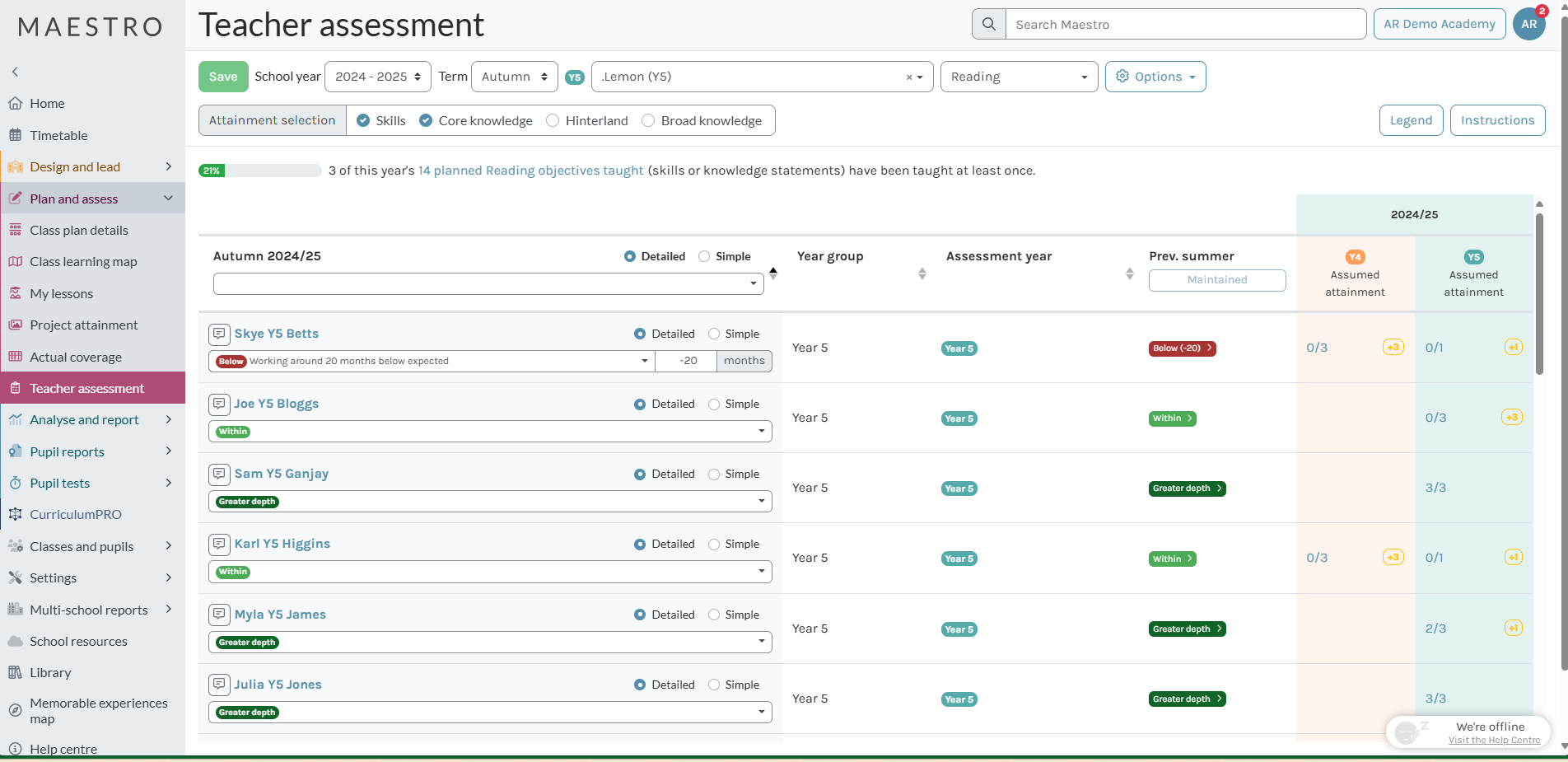
CurriculumPRO
If your school is using our sequenced curriculum model, CurriuclumPRO enables subject leaders to demonstrate how it is fully sequenced and connected. An invaluable tool for demonstrating your curriculum provision.
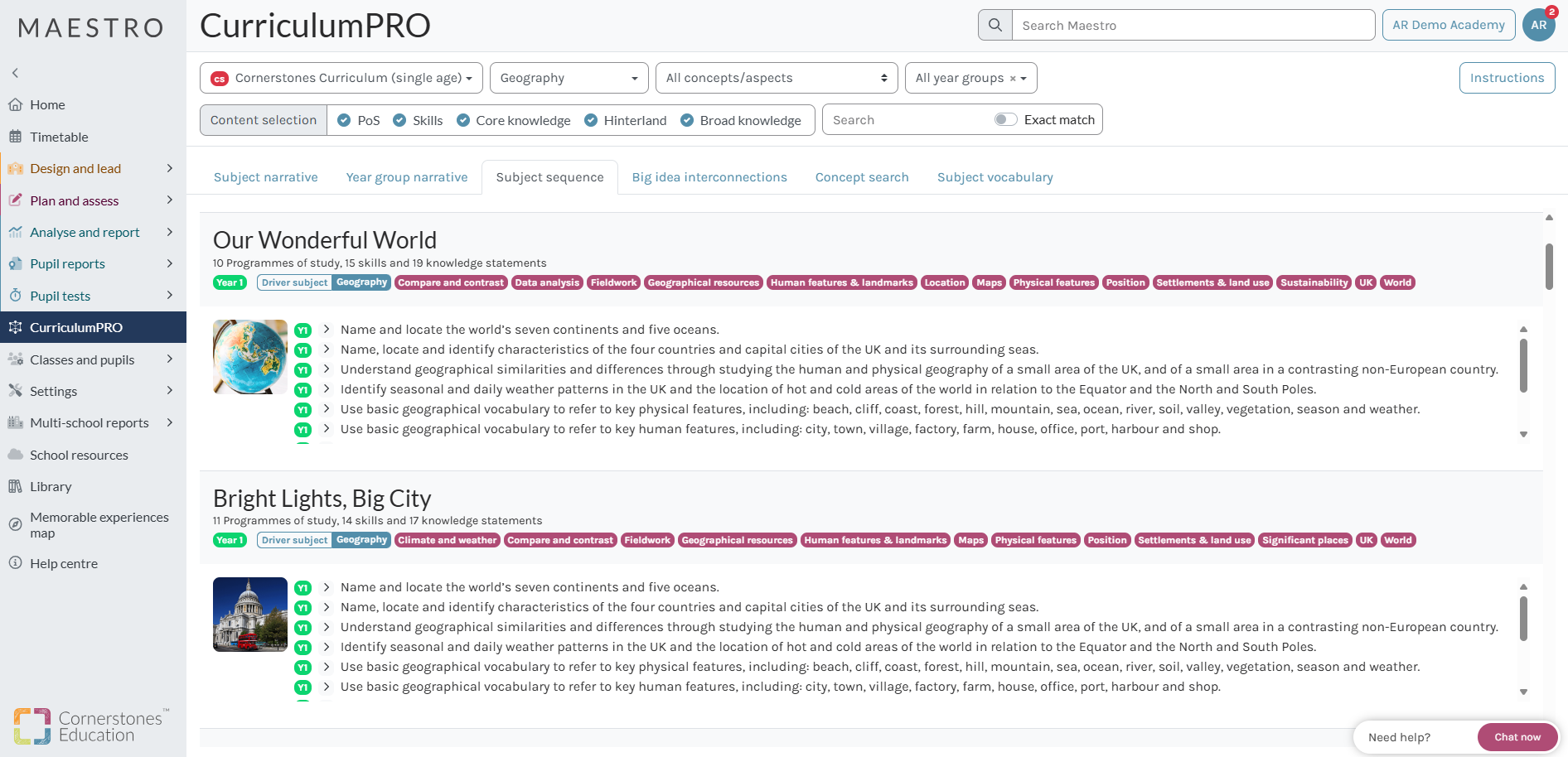
Summary
Without strong subject leadership in all subjects, a curriculum is set to fail by becoming unbalanced and biased towards the subjects where expertise is at hand. This is why it is imperative for primary schools to have a clear process and set of systems in place; to empower and enable subject leaders to support teaching and learning. The ABC of subject leadership brings all subjects to life and lays the foundations for future learning.
‘We have just had our Ofsted inspection, and I wanted to let you know that Curriculum Maestro was a vital part in the subject deep dives and is massively useful for subject leaders.’
Sarah Shaw, Headteacher, Hartshead Junior and Infant School, Liversedge, November 2019
‘Some senior leaders and small primary schools are concerned that they’re asking their teachers to take on more than one subject. We don’t have subject leaders at either of our schools because it’s all on Curriculum Maestro.’
Victoria Musson, Director of Education, The Mill Academy Trust, Witney
This article is taken from the Ofsted inspection framework edition of The Curriculum magazine from Cornerstones Education.



